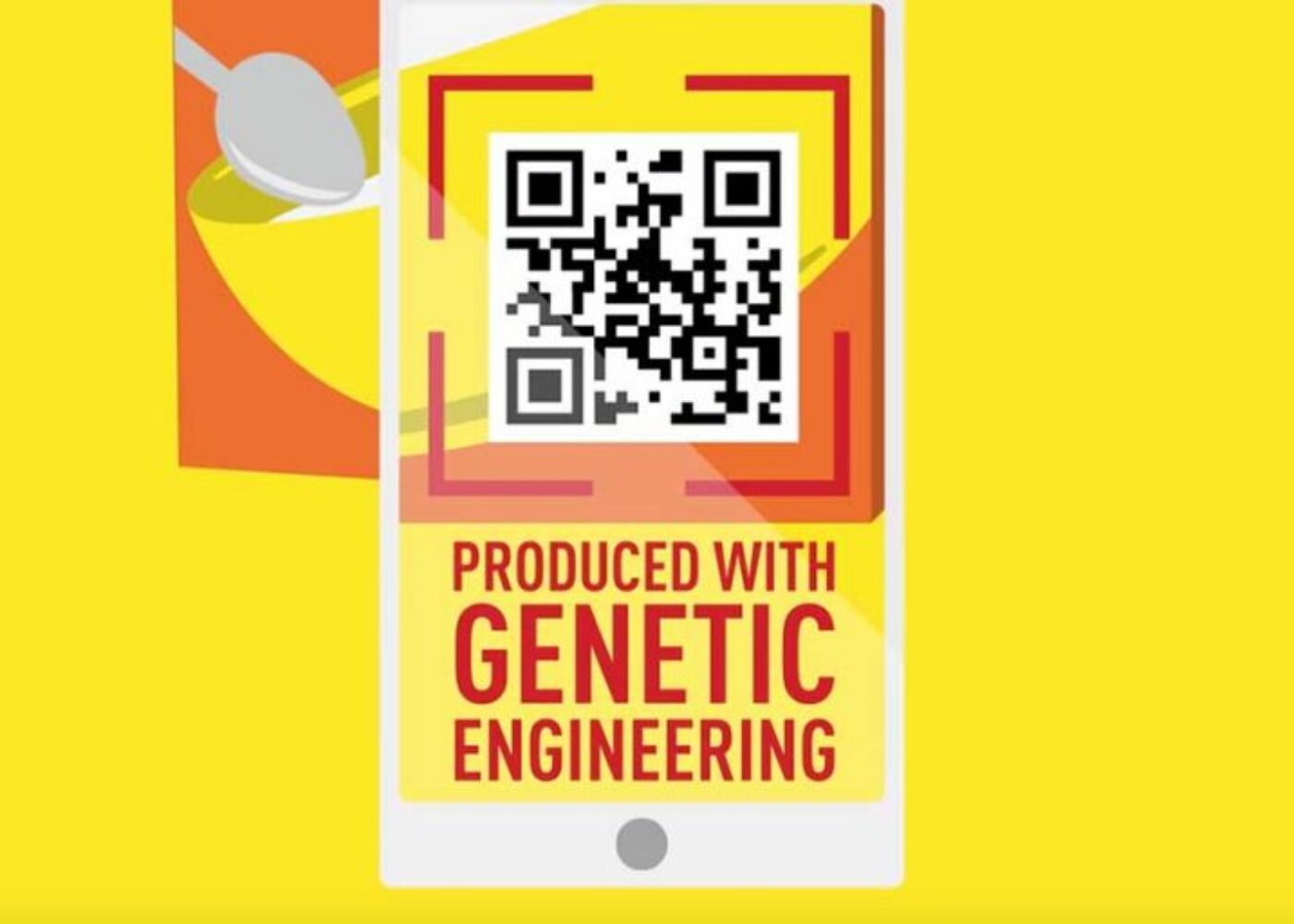Is it GMO? Why “Smart labels” Just Aren’t Good Enough

Now that a deal has been struck in the Senate to revive the idea of QR codes or so-called smart labels as a vehicle for GMO labeling, the stage is set to another Congressional fight on the subject. Lobbyists for the biotech industry will be soliciting votes and we will need to call our Senators and remind them who they are supposed to work for.
George Naylor, who farms near Churdan and is a board member of the Center for Food Safety and the Non-GMO Project, wrote this excellent discussion of why the proposed “smart labels” or QR codes for GMO labeling are just not the right solution.
I come from a long line of farmers and gardeners. On the farm I raise mainly corn and soybeans like almost every other Iowa farmer. But my gardening lets me indulge in many fruit and vegetable options that are beautifully displayed in the garden seed catalogs I get in the mail every winter. My ancestors couldn’t have imagined the diversity and disease resistance offered by the advances in conventional breeding. Fortunately, I have the choice to purchase the conventionally bred varieties rather than those that have been genetically engineered to resist herbicides or kill pests, because I select from catalogs that say categorically they do not and will not sell seeds that are genetically engineered.
I have also made the choice not to raise genetically engineered corn and soybeans. Why? Well, rather than boosting rural economies, genetically engineered crops have drained billions of dollars from them—the temporary ease of weed control has led to even more farm consolidation; and the unbelievable power of the herbicide glyphosate to kill both annual and perennial weeds has destroyed food and nesting resources for many of our important insects and birds. Farmers have spent billions of dollars on genetically engineered seeds only to see weeds become resistant to the glyphosate on Roundup Ready crops. Corn rootworms, too, have become resistant to the most common insecticidal proteins included in many GMO corn varieties. These resistance problems require even more application of herbicides and pesticides that threaten the health of rural Americans—glyphosate was recently recognized by the World Health Organization as a “probable carcinogen”—and add to chemical residues in food products.
Altering the genetic building blocks of plants and animals, which in turn alters the building blocks of our ecosystem, rightly concerns many Americans. National polls consistently show that 90 to 95 percent of Americans support mandatory labeling of genetically engineered food, because they want to know what is in the food they eat and feed their families.
And we should have the right to know when a food product contains genetically engineered (GE) ingredients, especially as they carry greater and greater residues of this probable cancer causing chemical. Some states such as Vermont, Connecticut and Maine have voted to mandate this labeling. But Congress is trying to preempt these states from giving their citizens what they have asked for.
The latest ploy is so-called “smart labels.” This is the most recent attempt by big agribusiness, the giant food processors and members of Congress who submit to their lobbying pressure to keep customers in the dark about what’s in our food. Instead of a simple declaration in plain language on the product, a smart label will require scanning each item with a smart phone. Besides the unbelievable time and inconvenience involved, many Americans don’t have smart phones and can’t afford them. More than half of rural Americans don’t have smart phones, let alone the network coverage required to access the information.
You see, there is nothing smart about smart labels. In fact, they would make product information more difficult to access, are deeply discriminatory, and potentially set a dangerous precedent that could allow all labeling and nutritional information to be removed from packaging in the future, available only through the same discriminatory technology.
We are in the dark simply because a handful of multinational agribusiness and food companies have spent more than $100 million over the past three years to fight the consumer’s right to know, and now are pushing senators from both sides of the aisle to endorse discriminatory smart labeling. Sadly, many who we’ve depended on in the past to represent rural interests, like Sens. Stabenow, Klobuchar and Heitkamp, so far seem to be siding with the chemical/seed corporations and the food giants instead.
Voters and consumers have enough to keep us awake at night; we don’t need to be worrying about what’s really contained in the food we put on our tables. Tell our elected officials that we have a right to know what is in our food and to make informed choices about the products we purchase.
Originally published at the Des Moines Register and reposted with the author’s permission.





